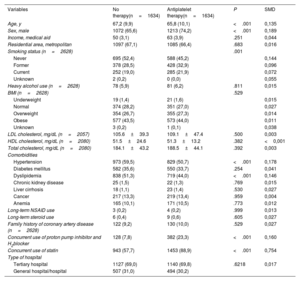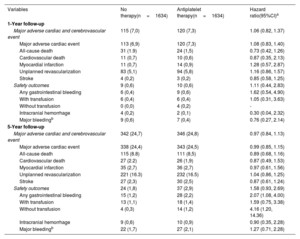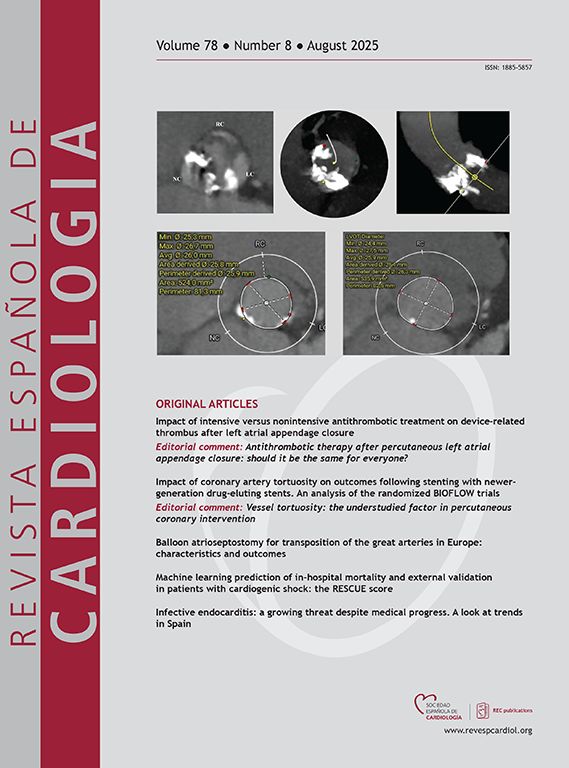
This study investigated the safety and efficacy of antiplatelet therapy in patients with intermediate coronary artery stenosis who underwent deferred revascularization due to their fractional flow reserve (FFR).
MethodsA nationwide cohort study was conducted using the Korean National Health Insurance Service database. A total of 4657 patients with intermediate coronary artery stenosis who underwent deferred revascularization due to their FFR were identified from 2013 to 2020. FFR was indicated in patients with no prior evidence of myocardial ischemia and intermediate coronary artery stenosis (50%-70%) as determined by quantitative coronary angiography. Patients were classified according to whether antiplatelet therapy was initiated after the index procedure. The primary efficacy outcome was major adverse cardiac and cerebrovascular events (MACCE), a composite of all-cause death, myocardial infarction, unplanned revascularization, and stroke, during a 5-year follow-up period. The primary safety outcome was any gastrointestinal bleeding.
ResultsAfter propensity score matching, there were 1634 patients in the antiplatelet therapy group and 1634 in the nonantiplatelet therapy group. The risk of MACCE was similar between the 2 groups (24.8% vs 24.7%; adjusted HR, 0.97; 95%CI, 0.84-1.13; P=0.745). The risk of gastrointestinal bleeding was higher in the antiplatelet therapy group than in the nonantiplatelet therapy group (2.2% vs 1.2%; aHR, 2.07; 95%CI, 1.08-4.00). These results were similar in subgroup analyses.
ConclusionsIn patients with intermediate coronary artery stenosis who underwent deferred revascularization due to their FFR, antiplatelet therapy may increase the risk of gastrointestinal bleeding without reducing the risk of future ischemic events.
Keywords
Identify yourself
Not yet a subscriber to the journal?
Purchase access to the article
By purchasing the article, the PDF of the same can be downloaded
Price: 19,34 €
Phone for incidents
Monday to Friday from 9am to 6pm (GMT+1) except for the months of July and August, which will be from 9am to 3pm








